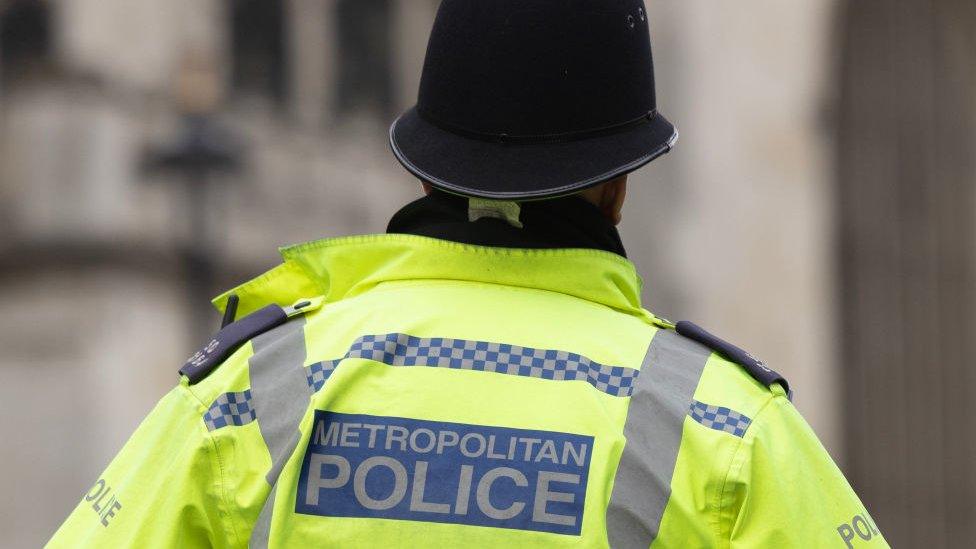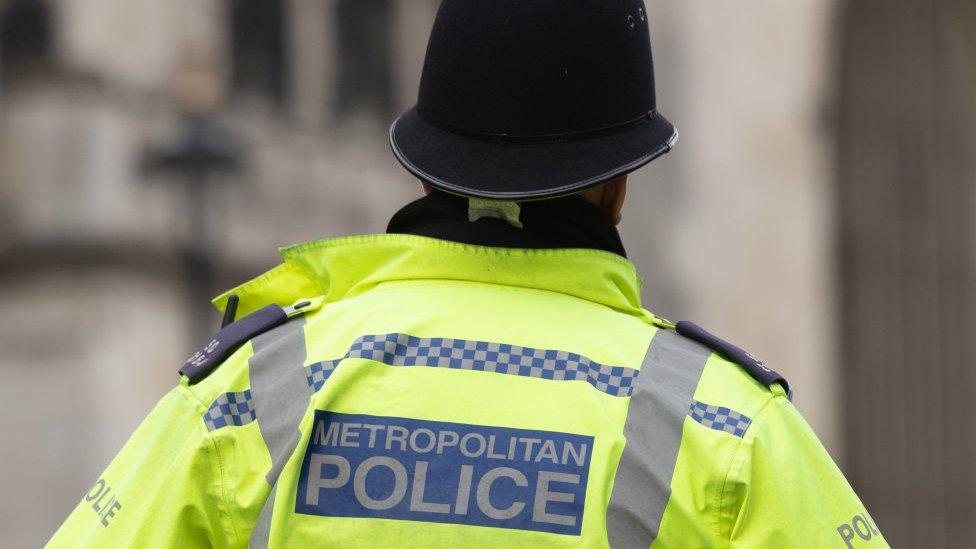London: Fears mental health calls going unattended
- Published

Right Care Right Person aims to tackle the amount of time officers spend on policing mental health
Mental health representatives have voiced concerns that emergency calls outs are going unattended.
The Met Police has changed the way mental health callouts are dealt with in the capital, as part of an initiative with the NHS.
Fewer police officers now attend mental health calls, as part of the Right Care Right Person (RCRP) strategy.
They will continue to attend callouts if a person is at risk of serious harm.
In other circumstances, the police now look to ensure that support is provided by the NHS and mental health services.
'Huge strain' on frontline
Met commander for public protection Kevin Southworth said that before RCRP, mental health calls were putting "a huge strain on our frontline".
He said that police were resorting to detaining people under Section 136 of the Mental Health Act as many as 700 times per month.
Now he said arrests are "averaging less than 400 s136 detentions".
Dr Sarah Hughes, chief executive of the charity Mind, questioned how the reduction in s136 arrests had been achieved.
"I do wonder where those additional 300 people have gone, because those needs don't disappear overnight, and I guess that is the deep and profound concern that we have," she said.
She told the committee that her organisation was also worried about a continuing "gap" in the police's understanding of mental health issues.
"The police won't necessarily know what is a mental health issue or not, until they get there and are able to assess the situation," said Dr Hughes.
"I think it's difficult in relation to assessing whether things are life and death - so, if somebody's at risk of suicide. Again, you won't know the risk until the person's in front of you.
'Parlous' state
"There's a bit of a gap between what we think the police should understand in relation to mental health, and what is readily available for police officers on the ground. That gap still exists, that gap is not going to be addressed by RCRP."
Dr Lade Smith, president of the Royal College of Psychiatrists, said that her organisation was also supportive of RCRP's principles while believing there have been issues with its implementation.
She said mental health services across the country, but particularly in London, are in a "parlous" state.
"We have had chronic under-resourcing, we have terrible workforce shortages, and since the pandemic, as everyone knows, there's been a 20% increase in need and demand. And that's across the board - particularly in children and young people," Dr Smith said.
She later told the meeting that London has among the highest rates of mental illness, "not simply in the country, but in the world".
She added: "In places like south London, the rates of psychotic illnesses for example are four times higher than they are anywhere else in the world, except for Trinidad."
Martin Machray, an executive director for NHS England, stressed to the committee that RCRP was not only intended to help improve the response to mental health calls, but for a wider range of health and social care situations where the police are not always best placed to assist.

Listen to the best of BBC Radio London on Sounds and follow BBC London on Facebook, external, X, external and Instagram, external. Send your story ideas to hello.bbclondon@bbc.co.uk, external
Related topics
- Published1 November 2023
